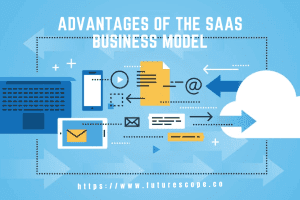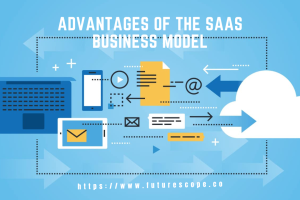Last Updated on February 19, 2022 by Editor Futurescope
Tech has become a major part of the business world in the last several years. You can do business virtually with less hassle than ever before. One downside though is that it gives others access to your business as well, who may not have the best intentions. From here on out you will be able to enjoy the convenience and connectivity of tech, without fear of your online security and privacy being put at risk.
Digital Security and Privacy Tips for Business Owners
As a small business owner, it is important to protect your digital security and privacy. Preventing Data Breaches is paramount in today’s digital world. With so much information being stored on systems all over the world, malicious hackers are constantly trying to infiltrate and steal data for personal gain. Hackers are getting more sophisticated everyday and the recent Ashley Madison data breach is just one example of the many data breaches that occur each year. Therefore it is of the utmost importance for businesses to take all possible precautions when it comes to preventing data breaches. Protecting data is just as important as producing it.
Here are few digital security and privacy tips for businesses that will help prevent data breaches:
1. Use strong passwords and change them regularly.
2. Install anti-virus software and keep it up-to-date.
3. Only open emails from trusted sources.
4. Be careful when clicking on links or downloading files.
5. Keep your computer and mobile devices secure with passwords and encryption.
6. Educate employees on digital security and privacy practices.
7. Maintain a list of authorized and unauthorized users.
8. Designate a digital security and privacy team member to act as the business’s point person.
9. Consider investing in a solid-state drive for your laptop computer.
10. Encrypted communications can be a great tool for protecting your sensitive data.
11. If you use Google or Apple iCloud, avoid the wide array of public and private security measures they offer.
12. Use a Virtual Private Network (VPN) to protect your privacy and security when accessing the Internet from your computer, mobile device, or both.
13. Encrypted connections can be a great way to protect your privacy and security when browsing the Internet, especially if you use public Wi-Fi.
14. Use firewalls to block certain ports and protocols.
15. Encrypted connections can be a great way to protect your privacy and security when shopping online, especially if you use public Wi-Fi.
16. Implementing security measures and procedures is an important step in the prevention of data loss, theft, and unauthorized access.
17. Always remember to close applications when you are finished using them.
18. Consider investing in a program that automatically updates your antivirus software.
19. Enable security features on your browser; some browsers have these features built in.
20. Make sure you have the latest version of Google Chrome, Firefox, or Microsoft Edge.
Why Is Cybersecurity A Concern For Small Businesses?
Small businesses are increasingly becoming targets of cybercrime. Why is cybersecurity a concern for small businesses? Information Technology (IT) is a costly investment for many small businesses, and they may not be able to afford the highest tech specs on their computers and servers.
Small businesses are the backbone of the economy, and their success is vital to the country’s prosperity. That’s why it’s so important to make sure their data is safe and secure. Here are three reasons:
1. Small businesses are not as well protected as larger businesses.
2. Small businesses are not as aware of the risks of cybercrime as larger businesses.
3. Small businesses are more likely to be victims of cybercrime because they have less sophisticated security measures in place.
Small businesses are increasingly becoming targets of cybercrime. According to the Small Business Administration, small businesses account for 58% of all U. S. businesses but only 26% of revenue. They also report that small businesses are four times more likely to experience a cyberattack than large businesses. The cost of cybercrime to small businesses is $17. 4 billion dollars each year.
The following are some of the most common types of cyberattacks that small businesses are likely to experience:
CRM/EDIhacking: The manipulation of business documents including emails and application forms to fraudulently gain access to products and services.
Point of Sales (PoS) terminals: The use of malware-infected payment cards to purchase items that do not require a payment card.
Systemic Breaches: These are breaches that impact many businesses across an organization, such as a supply chain attack.
Data Lack: This is the actual theft of data, which can be used to commit other crimes, such as identity theft.
Cyber Riot: This is a form of cyberattack in which multiple computers are controlled remotely and used to wage disruptive attacks.
Spamvertize: This is a form of cyberattack in which the network is flooded with so much traffic that it becomes difficult for the server to respond to legitimate requests.
Phishing: This is the attempt to fraudulently gain access to private information by asking question such as retrieving saved passwords, or sensitive information sent in email messages.
Scraping: This is the theft of data from a website by using a browser’s scraping feature to capture the data that is visible to the user.
Password Reuse: This is the act of using the same password across multiple accounts or services.
Crypto Launder: This is the process of washing money to make it appear as though it has traveled legitimately through multiple transactions.
Account Hijacking: This is the stealing of user accounts to commit fraud or install malware.
Insider Threat: This is the threat of employees using their work computers to steal or spy on corporate data.
Business Decision Fraud: This is the act of using false data to convince a business to make a decision that they will not change their policies due to fraud.
Conclusion
Cybercrime is becoming an increasing concern for small businesses. The Ashley Madison data breach is just one example of the many data breaches that occur each year. With so much information being stored on systems all over the world, malicious hackers are constantly trying to infiltrate and steal data for personal gain. In this article, we discuss the importance of protecting small businesses from cybercrime and share a few digital security and privacy tips for small business owners. Why is cybersecurity a concern for small businesses? One reason is that small businesses are often seen as an easy target for cybercriminals. They may not have the same level of security as larger businesses, and they may not have the resources to recover from a data breach.









